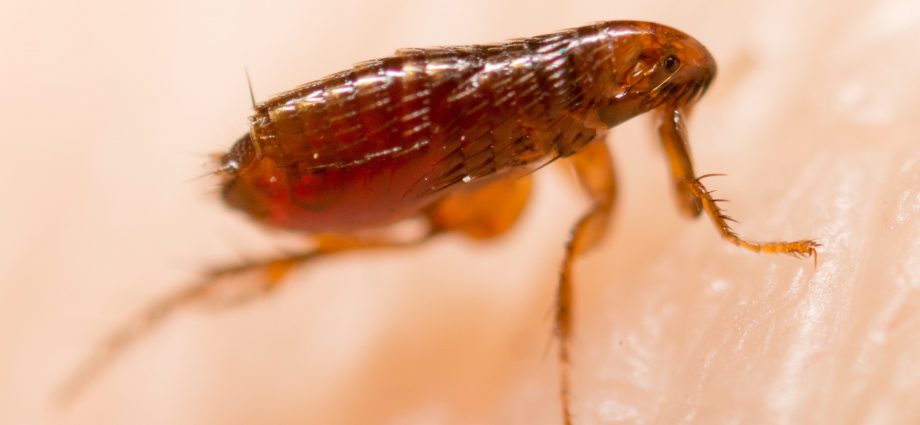FRIDAY, Aug. 4, 2023 (HealthDay News) — Los Angeles county is seeing more cases of flea-borne typhus, with 171 cases and three deaths reported in 2022, health officials reported Thursday.
That’s a big rise, they noted: Since 2010, when only 31 cases of typhus were reported, fleas have been spreading the disease widely in the California city.
While many people who become infected don’t even know they’re sick, those with serious medical conditions are at risk for severe illness or death, according to the U.S. Centers for Disease Control and Prevention.
“We don’t completely understand how typhus causes complications, but we do know that flea-borne typhus can cause complications in general, such as sepsis, fevers and issues with your liver,” said report author Dr. Jemma Alarcon, a CDC epidemic intelligence service officer stationed in Los Angeles. The report was published Aug. 4 in the CDC’s Morbidity and Mortality Weekly Report.
“A majority of people are asymptomatic or have very mild disease. They might just get a headache and not even know that this is what they had,” she explained. “In this instance, the flea-borne typhus, unfortunately, did affect the patients… one of them, her heart, and another one, his immune system was hyperactive, and the last one was related to sepsis and blood issues.”
Report co-author Dr. Umme-Aiman Halai, from the Los Angeles County Department of Public Health, said the number of infected fleas living on animals that people come into contact with has been increasing in Los Angeles.
“There could be population expansion to suburban areas, increased contact with wildlife, lack of rodent control programs in urban centers and suburban areas,” she noted.
Global warming might also be leading to more infected fleas, but that’s only speculation, Halai said.
Regardless of the reason for the increase in cases, one expert said doctors need to take note.
“This has been a rare and unusual condition, and to see reports that describe the increasing frequency of this tells me that in this world things are always changing,” said Dr. Bruce Hirsch, an infectious disease specialist at North Shore University Hospital in Manhasset, N.Y.
These three deaths are unusual, he noted.
“Individuals who are dealing with other health conditions are more vulnerable to all kinds of complications, and all kinds of outcomes,” Hirsch said. “We must add flea-borne typhus to that list.”
Alarcon is also concerned that doctors don’t think of typhus when symptoms appear. “I am concerned that there could be cases where the patient does go to see the doctor, but the doctor might not know to test for this disease,” she said.
To protect yourself, the researchers suggested controlling fleas on your pets and avoiding contact with animals likely to carry fleas.
In the first case detailed in the report, a 68-year-old Hispanic man suffering from lymph node disease, type 2 diabetes and obesity was hospitalized with typhus and treated with the antibiotic doxycycline. But he later died from a blood disorder and septic shock.
The second patient, a 49-year-old Hispanic woman also treated with doxycycline, suffered several episodes of cardiac arrest and later died of multiple organ failure caused by typhus. The woman had feral cats living in her backyard.
The third patient was a 71-year-old Hispanic man with a compromised immune system who also died of septic shock linked to typhus infection. This patient had been living in a homeless encampment, where he was most likely exposed to infected fleas.
The fact that all the patients were Hispanic isn’t relevant, Halai noted. It’s merely a reflection of the population of Los Angeles, she explained.
Flea-borne typhus is caused by a bacteria called Rickettsia typhi. It’s spread by contact with fleas that are infected when they bite infected animals, such as rats, cats or opossums. Once bitten, the disease carried by flea poop can get into the wound and cause sickness. The infected poop can also be inhaled or rubbed into the eyes. This bacteria is not spread from person to person. Flea-borne typhus occurs in tropical and subtropical climates around the world, including Southern California, Texas and Hawaii, according to the CDC.
Just last month, a Texas man lost his hands and part of his feet after contracting a severe case of typhus and going into septic shock.
Symptoms begin within two weeks after contact with infected fleas or flea poop and may include:
- Fever and chills
- Body aches and muscle pain
- Loss of appetite
- Nausea
- Vomiting
- Stomach pain
- Cough
- Rash (typically occurs around day 5 of illness)
Severe illness is rare and most people recover completely, sometimes without treatment. However, untreated disease can cause severe illness and damage to one or more organs, including the liver, kidneys, heart, lungs and brain, the CDC says.
“The biggest concern here is that it’s got to be under-diagnosed, because it’s got a lot of symptoms that are easily mistaken for other symptoms, so it’s got to be treated early,” said infectious disease expert Dr. Marc Siegel, a professor of medicine at NYU Langone Medical Center in New York City.
Siegel said typhus is easy to treat with doxycycline.
But he’s worried about the growing rodent and rat population in Los Angeles. “I’m concerned about more and more fleas carrying typhus and spreading it, but I don’t know how to stop it,” he said.
More information
For more on typhus, head to the U.S. Centers for Disease Control and Prevention.
SOURCES: Jemma Alarcon, MD, epidemic intelligence service officer, U.S. Centers for Disease Control and Prevention; Umme-Aiman Halai, MD, Los Angeles County Department of Public Health, Los Angeles; Marc Siegel, MD, professor, medicine, NYU Langone Medical Center, New York City; Bruce Hirsch, MD, infectious disease specialist, North Shore University Hospital, Manhasset, N.Y.; Morbidity and Mortality Weekly Report, Aug. 4, 2023
Copyright © 2025 HealthDay. All rights reserved.

